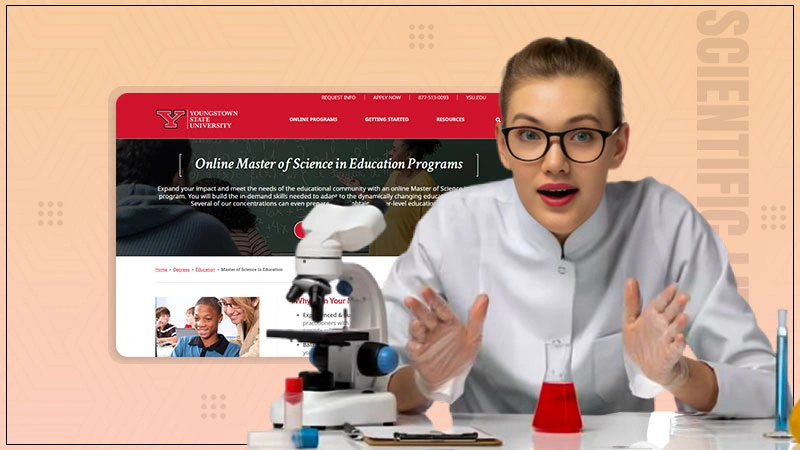

In a world increasingly shaped by rapid technological advancement, data-driven decision-making, and global challenges like pandemics and climate change, scientific literacy has emerged as an essential element of modern civic life.
No longer a domain reserved for researchers and academics, science now permeates nearly every aspect of how societies function—from policymaking and education to healthcare, agriculture, and national security. The ability to comprehend, evaluate, and make decisions based on scientific principles has become as critical as reading, writing, and arithmetic once were.
Traditional civic literacy, which once focused on understanding governmental structures, voting rights, and social responsibilities, must now evolve to include the understanding of scientific principles that affect policy and daily life.
An informed citizen in the 21st century must not only be able to vote or understand laws—they must also be able to interpret data, distinguish between credible and misleading scientific claims, and participate in public discourse on issues ranging from climate policy to biotechnology. Scientific literacy is, in essence, the new foundation for empowered, responsible citizenship.
Learning for the Modern World: Science Education for the Digital Age
The transition toward scientific literacy as a civic necessity requires modern educational solutions that are accessible and adaptable. One powerful path to developing this competency is through an online master’s in science education, which equips educators and professionals with both deep content knowledge and the skills to disseminate it effectively. Online degrees provide flexible, self-paced options that make advanced education feasible for working adults, parents, and those in remote areas.
Beyond flexibility, online programs often offer accelerated pathways, enabling learners to finish sooner than traditional formats. One university embracing this forward-thinking model is Youngstown State University, which provides a variety of degrees designed to make pursuing education easier and more accessible.
Their mission is clear: to equip learners with the tools necessary to reach higher and accomplish more. The university’s online format—with multiple start dates throughout the year—ensures that learners don’t need to wait for a semester break. Instead, they can start early and graduate faster, accelerating their impact in educational and civic domains.
The Intersection of Science and Citizenship
Scientific literacy extends far beyond understanding textbook content. It is a civic tool. For example, consider debates around vaccinations. Informed citizens should be able to comprehend how vaccines work, interpret scientific studies, and assess the credibility of health claims. Without this understanding, public discourse becomes mired in misinformation, leading to mistrust in public health institutions and policies.
Climate change is another area where scientific understanding intersects with civic responsibility. Understanding carbon emissions, sea-level rise, and renewable energy technologies enables individuals to vote on policies, support initiatives, or even change personal habits with full awareness of their implications. Scientific literacy empowers individuals to engage meaningfully with community leaders, environmental initiatives, and national legislation.
Combatting Misinformation in the Age of Virality
The speed and scale at which information spreads in the digital age make scientific literacy a powerful defense against misinformation. Social media algorithms reward content that provokes emotion, often at the expense of truth. Scientific illiteracy leaves people especially vulnerable to viral myths, conspiracy theories, and false narratives that may feel persuasive but are factually incorrect.
This phenomenon has real-world consequences. Misinformation around genetically modified foods, for example, has led to widespread public anxiety despite overwhelming scientific consensus about their safety. Similarly, climate change denialism continues to stall important policy action. A scientifically literate population can act as a bulwark against such misdirections, not just by rejecting false claims, but by confidently sharing accurate information and engaging others in informed discussion.
The Role of Media and Journalism
The media plays a pivotal role in shaping public understanding of science. However, scientific findings are often misrepresented in headlines, oversimplified for brevity, or distorted to fit a narrative. A scientifically literate citizen can navigate this terrain with discernment. Rather than accepting sensationalized headlines at face value, they examine the methodology behind a study or look for confirmation from multiple credible sources.
Media literacy and scientific literacy go hand in hand. Understanding statistical terms such as correlation vs. causation or knowing how peer-reviewed journals work allows citizens to consume media more intelligently. This understanding also facilitates productive dialogue between the public and policymakers, researchers, or journalists.
Fostering Innovation and Economic Growth
Scientific literacy is not only a civic imperative; it’s an economic one. Countries that foster scientific understanding among their populations are better positioned to innovate, adapt to technological change, and remain competitive in global markets. A workforce with a strong grasp of scientific principles is more adaptable, creative, and capable of solving complex problems.
Innovation thrives in an environment where science is not feared but embraced. Citizens who understand and appreciate scientific inquiry are more likely to support research funding, new technologies, and infrastructure projects that lead to job creation and economic resilience. On a microeconomic level, individuals who pursue careers grounded in science and technology often experience upward mobility and increased job stability.
Science as a Unifying Language
At a time when political divisions seem to widen daily, science offers a common ground rooted in evidence, logic, and repeatability. Scientific methods transcend cultural and political boundaries. They provide a shared framework through which problems can be discussed and solutions can be explored collaboratively.
This potential for unity is particularly evident in global scientific collaborations. Whether mapping the human genome, developing COVID-19 vaccines, or addressing climate change through international agreements, scientific cooperation has achieved what politics often cannot. But for citizens to appreciate and support these efforts, a baseline of scientific literacy is essential.
Preparing the Next Generation
The future of democracy and progress depends on the next generation being equipped with tools not only for personal success but for collective well-being. Scientific literacy must be instilled from an early age, not just as a subject in school but as a lens through which to view the world.
Young people must learn how to test hypotheses, evaluate claims, and understand the broader impact of scientific developments on society. These skills are essential not only for those entering STEM fields but for anyone navigating a world where science shapes the food they eat, the air they breathe, and the technologies they use daily.
By doing so, society will not only produce better scientists but better voters, leaders, and neighbors—people who understand that scientific literacy is not an academic luxury but a civic necessity.